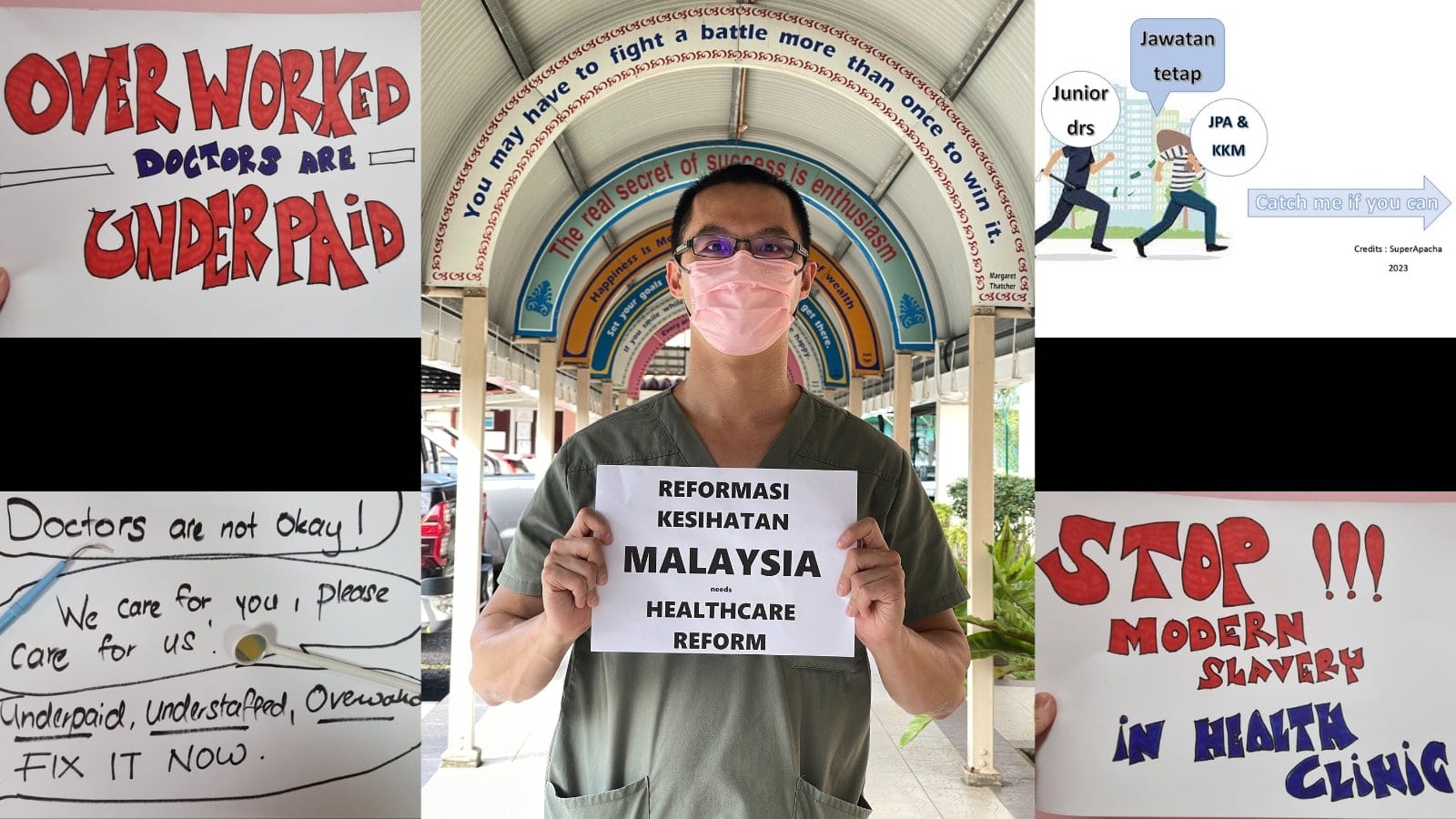How does one paint a picture of the collapse of a health care system?
Stacked bodies in an overflowing morgue? Canvas beds outside a hospital entrance? Patients sharing an oxygen supply wall in the emergency department?
All these happened during Covid-19. When the acute phase of the pandemic abated, everyone seemed to think that things had gone back to normal. But time does not freeze disease.
For more than a decade, Malaysia’s public health care system has been increasingly strained. No substantive actions were taken after the Auditor-General’s 2018 report, released in July 2019, warned the nation of overcrowded, understaffed, and underfunded emergency departments in public hospitals.
As more and more health care professionals – doctors, nurses, pharmacists, and dentists, among others – leave the service due to excessive workloads and intolerable working conditions, a vicious cycle is created as remaining workers are further burdened with ever rising patient loads and a shrinking workforce.
It’s obvious that the system is bound to collapse.
That’s why 95 per cent of the 1,652 government health care professionals and workers, mostly Ministry of Health (MOH) staff, who took part in CodeBlue’s survey last month believe that the public health care system is currently in crisis.
Current as in now. Not in one year, three years, or five years. But now.
Health Minister Dr Zaliha Mustafa’s statement, in response to CodeBlue’s poll, did not acknowledge that our health care system is in crisis. Her generic statement proposed no specific solutions to complaints by health care workers about severe staff shortages, and being overworked, underpaid, burned out, and insecure about their career progression.
Dr Zaliha did not set any key performance indicators (KPIs) or timelines for any specific plans either, such as regulating working hours or instituting a pay rise for health care professionals.
The situation is so bad that an alarming 73 per cent of survey respondents want to resign from the government health service, while more than half are willing to go on strike. In the permanent staff subset of the poll alone, 62 per cent are thinking of quitting their jobs.
What CodeBlue’s survey achieved was in gathering all the grievances by government health care workers nationwide across professions into a single platform that measured the magnitude of their overwhelming anger, frustration, and even despair.
“I don’t know what to do; I just don’t know what to do. I don’t see where this is going,” multiple survey respondents told us in hour-long, sometimes two-hour-long, conversations.
The frankness of many health care professionals in their interviews with us after taking our survey, risking their livelihoods by speaking publicly, shows the depths of their desperation.
Dr Zaliha’s statement had again alluded to the Health White Paper, a project initiated by her predecessor, Khairy Jamaluddin.
It is time for Dr Zaliha to concretise the groundwork laid by Khairy. There has been enough statements, meetings, and overseas trips. It’s time to act.
The institution of the MOH must admit that it is in crisis or – at the very least – that it needs help. Don’t be proud of not turning patients away by giving them false hope instead that they can be treated, when critically ill patients are waiting 30 hours or days in the emergency room for a bed.
This harms patients and may even result in preventable deaths.
Be transparent about the actual state of the health care system by providing granular data to the government, legislators, and the general public on waiting times for ward admission, patient loads, and health care human resources, so that we can know the true scale of the problem and work together to solve it.
Prime Minister Anwar Ibrahim must intervene in the crisis in our health care system within his first 100 days of office. It’s not a problem for the health minister to fix alone.
Save our health care workers so that they in turn can save us.
Editorials represent the views of CodeBlue as an institution, as determined through debate in the newsroom. CodeBlue’s Editorial Board comprises editor-in-chief Boo Su-Lyn, senior health writer Alifah Zainuddin, and health writer Sharayu Pillai.








